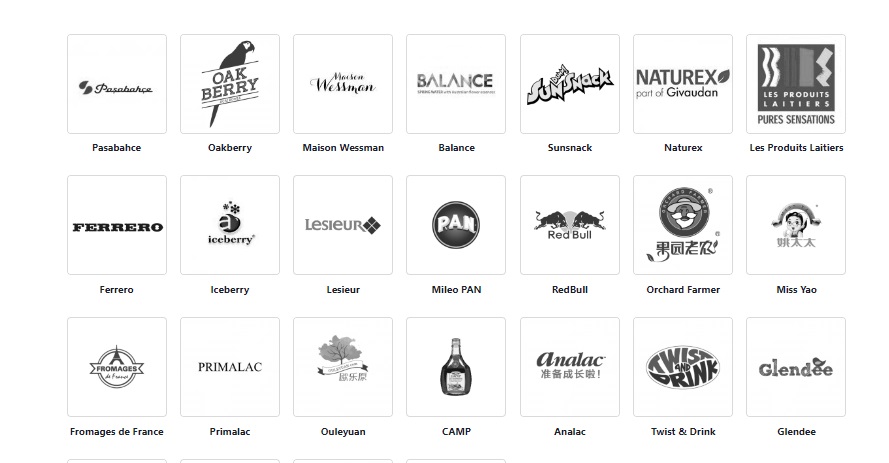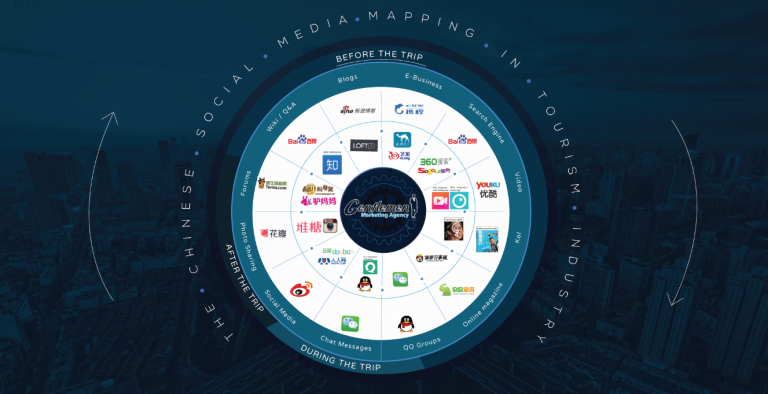The Golden Age to Export Food in China is NOW!
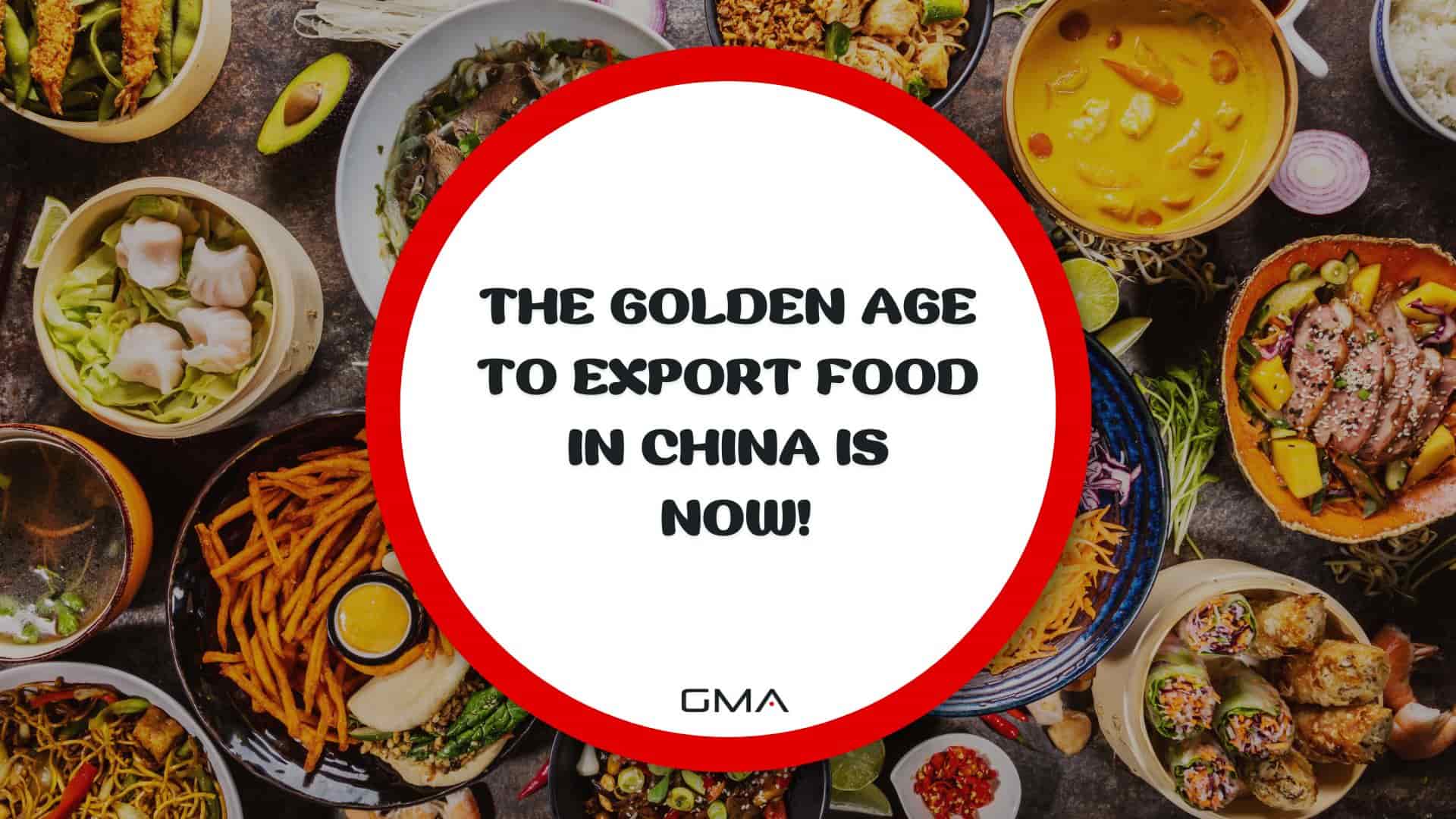
In recent times, Chinese distributors have actively been engaged in the pursuit of importing food from overseas to meet the demands of the Chinese population. With the current circumstances, 2023 presents itself as an opportune moment for brands to consider exporting food products to China.
However, several factors have contributed to this favorable environment:
Cost-Effective Agency
KPI and Results focused. We are the most visible Marketing Agency for China. Not because of huge spending but because of our SMART Strategies. Let us help you with: E-Commerce, Search Engine Optimization, Advertising, Weibo, WeChat, WeChat Store & PR.
- Ukraine war delayed imports to regional ports
- China disrupts global supply chains
- Many factories stopped during the Covid-19 pandemic
- Cities in China are in need of healthy foods
- Lockdown panic made the Chinese get used to buying a lot of food just in case of more lockdowns
In this blog post, we will explain why now it’s the best time to start importation of food products to China and what you should do to succeed.
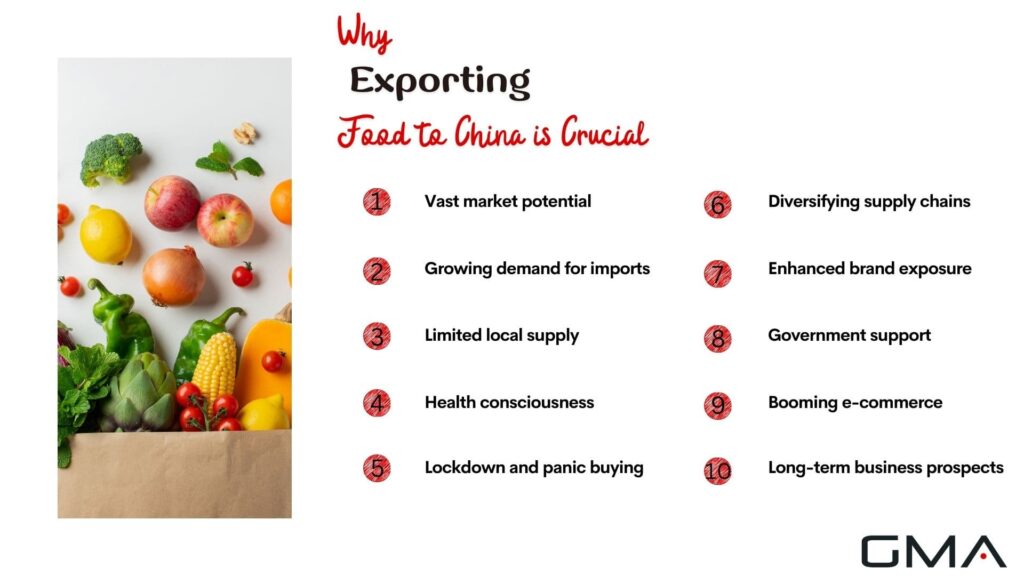
Changes in the Chinese Food Market
To successfully export food to China, it is crucial to understand consumer preferences, trends, and purchasing behaviors. Chinese consumers have become more discerning, seeking high-quality and diverse food options. Health and wellness have emerged as significant considerations, with a growing interest in natural and organic products.
Additionally, trends such as convenience foods, e-commerce, and premiumization have gained traction. Examining these aspects allows food brands to tailor their offerings to meet Chinese consumers’ evolving demands.
Why the Chinese Consumers Want More Imported Food?
Several key factors contribute to the increasing demand for imported food in China. First and foremost is food safety. Scandals and concerns over domestic food quality have led to a greater trust in imported products, perceived as having higher standards and regulations.
Chinese consumers also value the novelty and uniqueness of imported food, associating it with higher quality and authenticity.
Moreover, the expanding middle class with rising disposable incomes seeks aspirational and international experiences, leading to a preference for imported food products.
Understanding these factors helps food brands position themselves strategically in the Chinese market and cater to the growing demand for imported food.
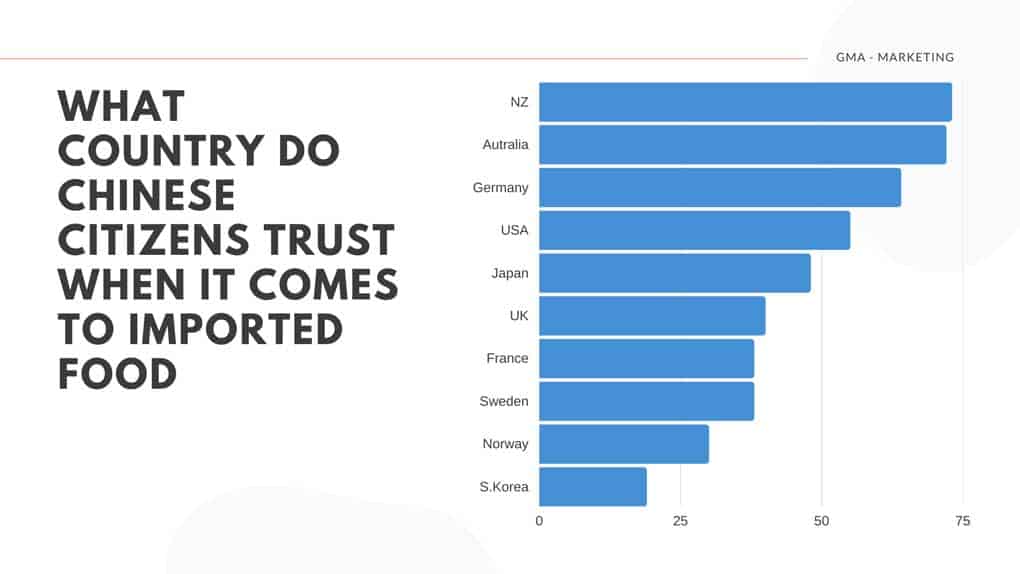
Logistic Problems in China in 2023
The Ukraine war has caused delays in routine transport, and the region, which imports more than half its wheat from Ukraine, is now forced to accept these delays. Shippers expressed concern about the expected delays in the supply of key goods to China.
Many countries in East, West, Middle, and Southern Africa depend on Russia and Ukraine for cheaper wheat, fertilizers, or vegetable oils. However, the war has disrupted the global commodity market.
More import delays after the Covid-19 cases in China in 2022, and the Russian invasion of Ukraine caused more congestion in the supply chain.
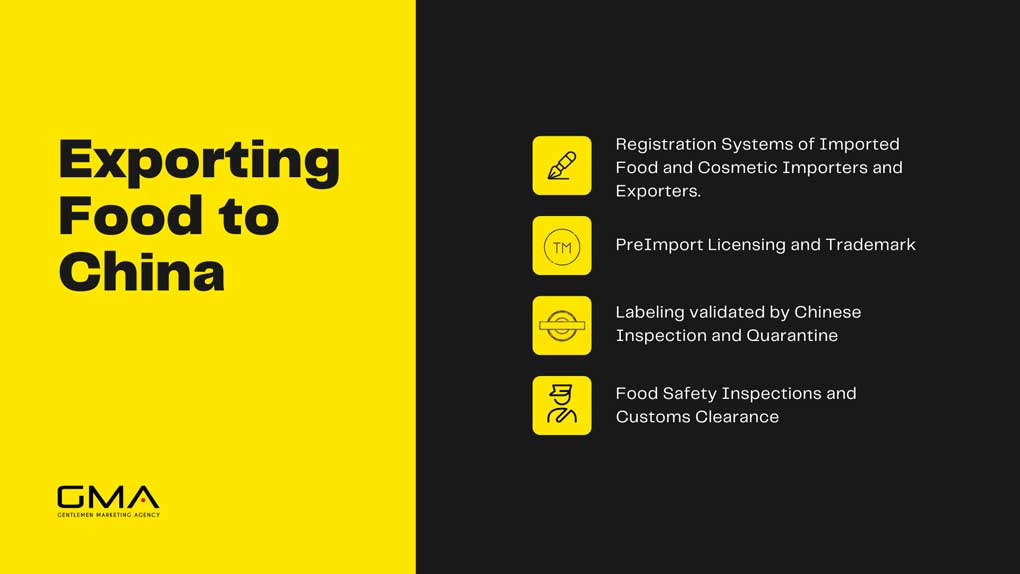
Navigating Export Regulations and Compliance
China’s Import Regulations and Requirements for Food Products
Exporters must have a solid understanding of China’s import regulations and requirements specific to food products. These regulations cover various aspects, including product categorization, permissible ingredients, food safety standards, and labeling requirements.
It is essential to familiarize oneself with the relevant laws and regulations set by Chinese authorities such as the General Administration of Customs (GAC) and the China Food and Drug Administration (CFDA).
Registering with AQSIQ
To export goods to China, your company must register with AQSIQ (The General Administration of Quality Supervision, Inspection, and Quarantine). AQSIQ regulates product quality standards and certifications. Ensure compliance with their rules and regulations before exporting to China.
Obtaining an AQSIQ certificate is vital to avoid customs issues. Without this certification, products may be seized or destroyed due to health risks. Contact AQSIQ to obtain the certificate, which requires filling out extensive paperwork and undergoing an examination.
The cost of the initial application for the AQSIQ certificate can range from USD 0 to 3800, depending on the product type and membership status with AQSIQ or ISO 9001. Meeting all requirements before inspections is crucial to avoid complications afterward.
Certain products like dairy and meat require an Automatic Import License (AIL) or other pre-import licenses. It is advisable to consult professionals to prepare the necessary documents in advance. Contact us for expert guidance and assistance.
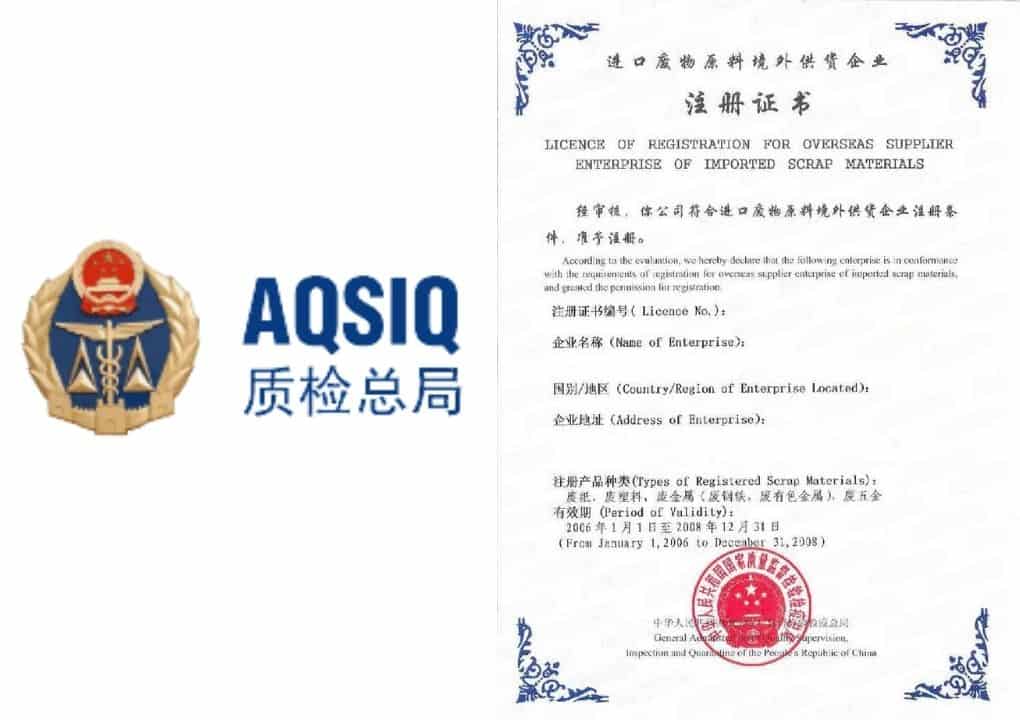
Labeling, Packaging, and Certification Standards
Labeling, packaging, and certification play a crucial role in exporting food products to China. Exporters need to comply with specific labeling requirements, such as providing accurate and comprehensive product information in the Chinese language.
Packaging must meet certain standards to ensure product integrity and preservation during transportation. Obtaining the necessary certifications, such as health certificates and quality assurance certificates, may be required for entry into the Chinese market.
Trade Barriers and Customs Procedures
Exporters must navigate trade barriers and customs procedures to ensure the smooth importation of their food products into China. This involves understanding import duties, tariffs, and any trade restrictions or quotas that may be in place.
Familiarizing oneself with customs procedures, including documentation requirements and clearance processes, is crucial for the timely and efficient entry of products into the Chinese market. Collaborating with experienced logistics partners and customs brokers can help overcome potential challenges and ensure compliance with import regulations.
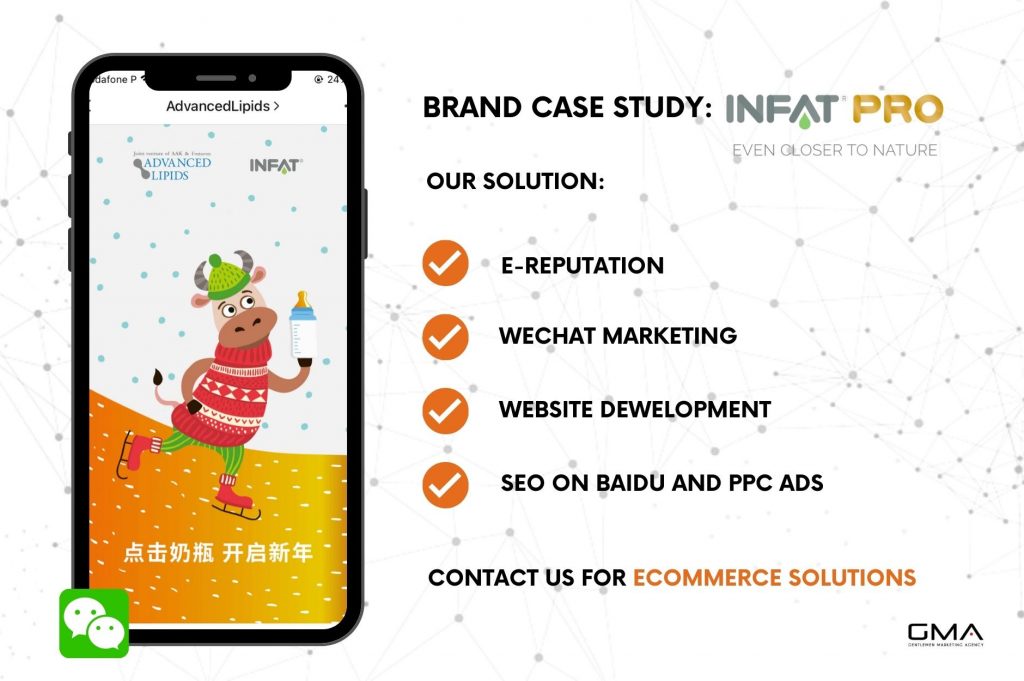
Market Entry Strategies
When entering the Chinese market, it is essential to assess various entry modes. Options include direct exporting, e-commerce platforms, establishing partnerships with local distributors, or setting up a physical presence. Each mode has its advantages and considerations, such as cost, control, and market reach. Evaluating these options will help determine the most suitable entry strategy.
China is a vast and diverse market, so identifying target segments and geographical areas is crucial. Analyze consumer demographics, preferences, and purchasing power to pinpoint the ideal customer segments for your food products. Consider regional differences and economic development levels to determine target areas with the highest growth potential.
Before entering the Chinese market, conducting comprehensive market research is essential. This includes analyzing the competitive landscape to understand existing players, their market share, and their strategies.
Additionally, studying consumer needs, preferences, and trends provides insights into product positioning and marketing strategies. Understanding the market dynamics and consumer demands enables you to tailor your offerings to meet their specific needs.

Building Strong Supply Chains and Distribution Networks
Seek out reputable distributors, agents, and partners who have a deep understanding of the local market and strong networks. Assess their track record, distribution capabilities, and ability to meet your specific requirements.
Efficient logistics and transportation channels are vital for smooth operations and timely delivery of your food products in China. Identify reliable logistics providers who can handle the complexities of transportation, warehousing, and inventory management. Establish streamlined processes and clear communication channels to ensure efficient coordination throughout the supply chain.
Maintaining product quality and integrity is crucial to succeed in the Chinese market. Implement robust quality control measures at every stage of the supply chain, from sourcing ingredients to production, packaging, and storage. Regular inspections, audits, and certifications help ensure compliance with quality standards. Collaborate closely with partners to monitor and maintain consistent product quality and safety.

Branding and Marketing in China
To effectively promote your brand in China, it is crucial to adapt marketing strategies to suit the local market. Understand Chinese consumer preferences, cultural values, and communication styles.
Tailor your messaging, branding, and advertising to resonate with the target audience. Consider localization of content, language, and visuals to create a compelling brand identity in China.
Utilizing Digital Platforms and E-Commerce for Brand Promotion
Digital platforms and e-commerce play a significant role in brand promotion in China. Leverage popular Chinese platforms such as WeChat, Weibo, and Douyin to engage with consumers, share content, and build brand awareness.
Utilize influencer marketing and key opinion leaders (KOLs) to amplify your brand message. Establish a strong presence on e-commerce platforms like Alibaba’s Tmall and JD.com to reach a wider consumer base and facilitate online sales.
Engage with consumers through interactive campaigns, contests, and experiential marketing to foster brand loyalty. Utilize customer feedback, social listening, and data analytics to gain insights and continuously refine your marketing strategies.

Government Support and Resources
Firstly, exploring the available government incentives and support programs is essential. This involves researching tax incentives, subsidies, grants, and export promotion schemes provided by Chinese government agencies. Taking advantage of these incentives can help reduce costs, enhance competitiveness, and ease the process of entering the market.
Secondly, connecting with trade organizations, chambers of commerce, and export agencies is highly beneficial. These entities offer valuable networking opportunities, guidance, and access to resources. By actively engaging with them, exporters can gain industry insights, establish connections with potential business partners, and expand their network.
Participation in industry-specific events, trade fairs, and business matchmaking sessions organized by these organizations is highly recommended to stay updated and acquire industry knowledge.
Lastly, accessing market intelligence and trade missions organized by government agencies is crucial for exporters. Staying informed about market trends, regulations, and trade policies through reports, research publications, and market briefings is essential for making informed decisions.
Additionally, participating in trade missions allows exporters to personally interact with potential buyers, establish contacts, and gain firsthand knowledge about the Chinese market.
Expanding Your Food Brand in China – Expert Assistance Every Step of the Way
With the current market conditions providing a prime opportunity for brands to export food to China, our agency is here to assist you every step of the way. Whether it’s navigating the complexities of international trade, ensuring compliance with import regulations, or connecting you with reliable distributors in China, we have the expertise and resources to facilitate a successful export journey.

Don’t hesitate to reach out to us anytime for comprehensive support in expanding your presence in the Chinese market. Together, let’s seize this favorable moment and unlock the vast potential that China offers for your food brand.
